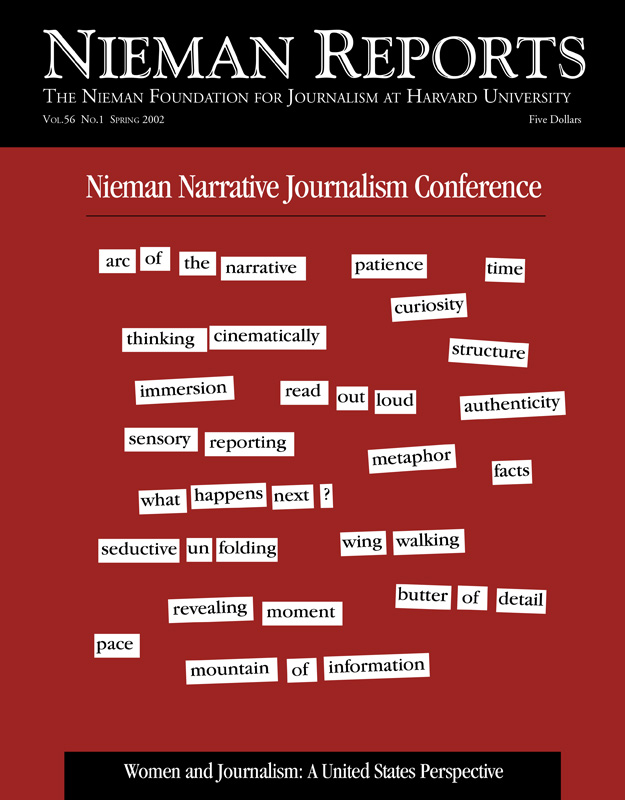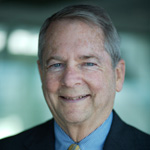In Vladimir Putin’s Russia, a fear unknown since Soviet rule collapsed a decade ago has cast a chill over the federation’s news media.
It represents a stark reversal of the freedoms that began with the reforms of Mikhail Gorbachev and the radical changes in the early years of Boris Yeltsin’s presidency, when a liberated press represented the brightest aspirations of the Russian people.
Evidence of Putin’s desire to control the ownership of Russian media and the content of its independent news organizations echoed through a two-day conference in Moscow in early February. High on the agenda was the decision of state authorities to shut down TV6, an independent network, and a move by a state-owned gas monopoly to take over the board of an independent radio station, Echo of Moscow, that had given employment to the journalists who lost their jobs when TV6 was closed.
These were coalescing influences that brought more than 300 newspaper editors, state television directors, independent journalists, representatives of the regional Russian press, and U.S. experts on Russia together in Moscow for a candid discussion of the threats to media freedom. It was the first time people in journalism from across the broad reaches of this huge country had come together to discuss the hard nature of their work and the growing recognition that the regional press is now facing the same coercive powers of the state as the media in Moscow.
The sponsors of the conference included the Davis Center for Russian Studies at Harvard, the Nieman Foundation, the journalism faculty at Moscow State University, and a small, liberal Russian political party, the Union of Right Forces (SPS). The core partners were unsure about collaborating with SPS because of its overtly political nature, explained Timothy Colton, director of the Davis Center, but “we came to feel it was our best bet because the party truly cared about the issue, and they were willing to open the event to all.”
Several villains of contemporary Russian journalism showed up, including Minister of Mass Media, Mikhail Lesin; Boris Jordan, director general of the independent network NTV, and television commentators who exposed themselves to criticism from the podium and the audience for distorted reporting.
Boris Nemtsov, head of SPS, a deputy prime minister under Yeltsin and a man thought to have his own presidential ambitions, said the state of the regional press in Russia is “acute” because the majority of publications are controlled by politicians. His point was reinforced by stories from regional representatives. One editor told how four of his staffers were assassinated for stories critical of local governments or the business community. A television executive described a local campaign by the mayor of Yekaterinburg, a city of 1.4 million, to take control of delivery of local newspapers as a tactic to ensure sympathetic coverage.
Businessmen who possess wealth and power, and are known as “oligarchs,” arrange publication of commissioned articles or “black PR.” An under-the-table fee goes to the journalist—and is sometimes shared with editor/owners—for an article praising a candidate for office or smearing a public figure. These stories typically are based on compromising material that is obtained illegally and provided to journalists.
President Putin’s assurances that he favors freedom of the press are increasingly discounted by evidence that an intolerance of criticism is driving his steely resolve to control the media. This emerging reality had a powerful effect on the participants, prompting Vladimir Posner, a popular figure in Russian television, to remark that the system may be democratic but “the brains are still Soviet.” And the respected television anchor, Yevgeni Kiselyov, said, “Fear has returned.”
The conference attracted extensive news coverage inside Russia and in the outside world, suggesting that the message will get through to Putin. The presence of U.S. Ambassador Alexander Vershbow on the program raised hopes that the issue of a free press in Russia will be on the agenda when Putin meets with President Bush in May.
Marshall Goldman, associate director of the Davis Center and an inspirational force behind the conference, had been unsure what the meeting would yield. In its closing moments he was enthusiastic. “Quite remarkable,” he said. “We have never experienced this in Russia before. At least people came together to talk about the issues. We heard how difficult it is to be a journalist in the regions. This discussion may not generate a free press but at least it will move us in that direction.”
Goldman left the audience with two ideas he thought might provide something positive for the press. He urged the journalism department at Moscow State University to set up “substantial prizes to award and encourage good journalism in Russia, and to establish a national journal of commentary and criticism of the press.”
“Russia needs something to reward the press rather than punish it,” he said.



